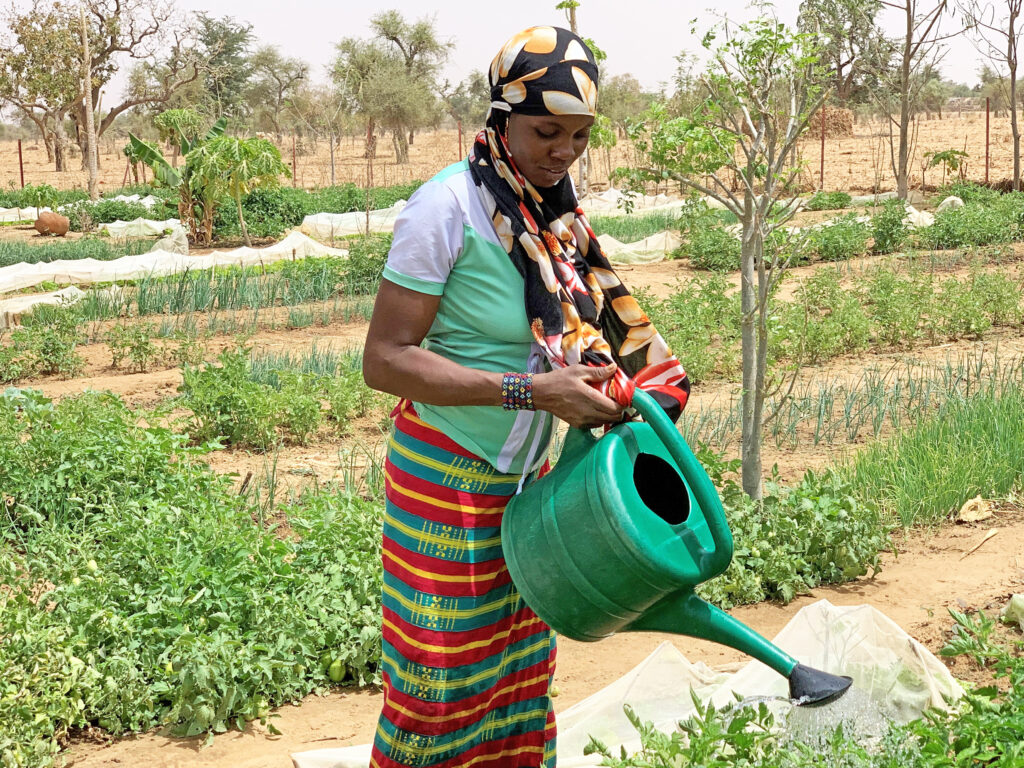Mali is one of the hungriest places on earth. This West African country is at the epicentre of a crisis of hunger, conflict and climate change. Every year, an average of 3.6 million people experience food insecurity according to the World Food Programme.
22-year-old Aissata’s village in central Mali has experienced food crises many times. Most of the children in the community experience malnutrition. Families face financial difficulties that make it impossible for them to meet their children’s basic needs.
To address some of these issues and ensure children have access to a balanced and healthy diet, Plan International started a nutrition project to help women in the village start their own communal vegetable garden. The women received training, technical support and seeds to grow a wide variety of fruit and vegetables, including pawpaw, okra, moringa, and bananas.

“In the past, we couldn’t even give our children 50 CFA francs for a snack, but now we do. We couldn’t take care of our children properly, but now it’s possible with the money we earn from sales,” Aissata says with a smile.
The maintenance of the vegetable garden depends exclusively on the women. They set up a gardening group, with a savings system which each woman contributes to. “We take care of the garden area with our cash box. Every month, each woman gives 250 FCFA which is put into the cash box,” says Aissata.
The women’s gardening group have built up their reputation in the area. In fact, they are known to sell the best products, especially off-season. They have ambitions to expand the garden but need additional support. “We don’t have enough clean water, we need another water supply system, a storage tank. To preserve our produce properly, we also need a storage warehouse, watering cans and rakes,” explains Fatoumata, a mother of three children.
The nutrition project is not only contributed to reducing food insecurity in the community, but has also strengthened social cohesion within the village.